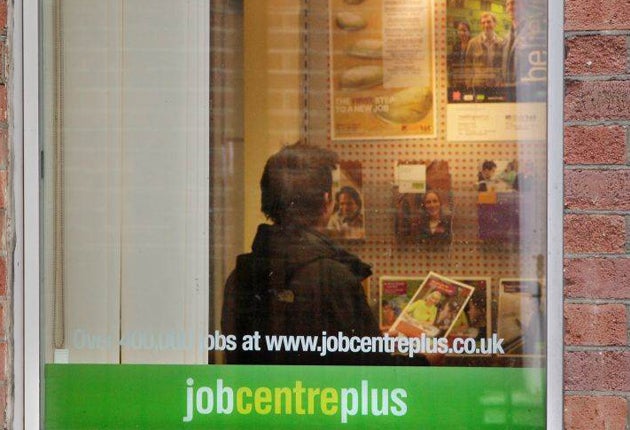Unemployment falls but Britain is now part-time

Unemployment in the UK fell during the three months to September, but economists remain concerned about the slow pick up in jobs and the record number of people now being forced into part-time roles.
The number of people without jobs fell by 9,000 to 2.45 million, according to official data, while the widely watched claimant count of people in receipt of benefits also came down by 3,700 in October, the first drop since July. September's rise was also revised down to just 1,300. The rate of unemployment remains unchanged at 7.7 per cent.
However, around 1.15 million people had part-time jobs or were self employed after failing to find full-time roles, a rise of 67,000 over the quarter. It is the highest total since records began in 1992. The total number of part-timers rose by 94,000 to 6.76 million in total, while self-employment rose by 112,000 to 4.03 million, also a record.
While the data was better than some had feared, economists said that the rising tide of part-time workers was an indication that businesses remain wary of taking full-time staff on as a result of fears about the economic outlook. Howard Archer, chief economist at IHS Global Insight, picked up the point when he said: "Significantly, part-time workers now account for 27.3 per cent of total employment, which is up from 26.7 per cent at the end of 2009, 25.7 per cent at the end of 2008 and 25.4 per cent at mid-2008. This suggests that businesses are reluctant to take on full-time workers due to their concerns over the longer-term economic outlook."
Mr Archer also said he expected the outlook to deteriorate, particularly as public sector cutbacks start to bite. He said: "The labour market data may well be mixed in the very near term, but we expect a clear deteriorating trend to increasingly emerge.
"We suspect that unemployment is headed up over the coming months as a consequence of slower, below-trend growth, rising business caution and public sector jobs being increasingly pared. Specifically, we forecast unemployment on the ILO measure to rise to 2.68 million by end-2011 and to peak around 2.75 million around mid-2012. This would see the unemployment rate rise to 8.4 per cent by end-2011 and to a peak of 8.6 per cent in mid-2012."
Jonathan Loynes, chief European economist at Capital Economics, said: "With plenty of spare capacity and major public sector job cuts to come, the labour market should be a strong source of downward pressure on inflation over the coming quarters."
That at least should provide some comfort for the Bank of England's Monetary Policy Committee given the persistence of inflation in the economy, which is likely to be exacerbated in the early part of the new year when the Chancellor's plans to hike VAT rates to 20 per cent from the current 17.5 per cent come into effect.
Despite the concerns of economists, employment minister Chris Grayling still argued that the figures were welcome: "Unemployment is down and employment is up, which is good news. The private sector is leading the way and creating jobs and opportunities for people across the country. Today's figures show that businesses are responding well and we will continue to help them expand and develop, as the economy grows."
Subscribe to Independent Premium to bookmark this article
Want to bookmark your favourite articles and stories to read or reference later? Start your Independent Premium subscription today.

Join our commenting forum
Join thought-provoking conversations, follow other Independent readers and see their replies